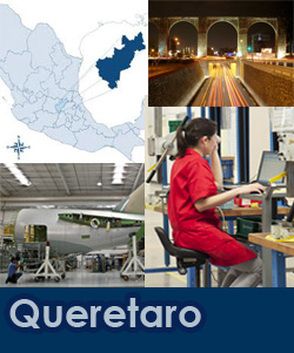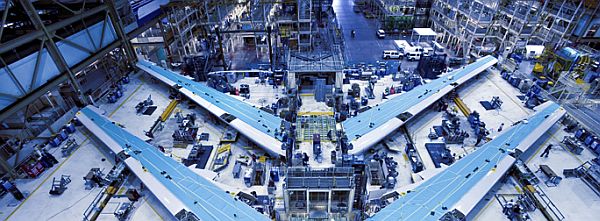Queretaro, Mexico - The winds of change are blowing in the booming central Mexican state of Queretaro, an area whose economy has been boosted by a thriving aerospace industry - highlighted by the presence of multinationals Airbus and Bombardier - and large inflows of foreign direct investment.
"Forty-seven percent of foreign direct investment (in Mexico) comes from the aerospace sector, which is concentrated here," the president of the Queretaro Aerospace Cluster, Klaus Gobenceaux, said last week in a meeting with reporters in that industrial complex.
Mexico has "exceptional human talent," and it adapts easily to the industry's requirements, Gobenceaux said, adding that there is also belief in the aerospace sector at the federal and local level.
"Really good things are being generated thanks to this political and private sector."
 |
Queretaro accounts for 31% of Mexico's 2016 budget for infrastructure investment.
The state's sustainable development secretary, Marco Antonio del Prete, said the key to its success is its "strategic location, consolidated educational network, qualified workforce, chain of suppliers and legal certainty for investors."
Additionally, the state tax office "gives back to taxpayers through business start-up support and improved services," he added.
One of the city's top priorities is to guarantee public safety through careful vetting of police and the installation of "a thousand security cameras with panic buttons" in the streets. Those measures and more are fully justifiable to protect a state that produces a refrigerator for export every 15 seconds and has a trade surplus this year of $8.2B.
The state will post annual gross domestic product (GDP) growth of 6 percent in the third quarter after expanding by 15% and 9.9%, respectively, in the first and second quarters. Those growth rates are far above the average for the country as a whole.
The state also ranks first nationwide in employment generation (with 33,000 jobs created thus far this year).
The state's proximity to the Federal District (Mexico City), which is located just 250 kilometers (155 miles) from Queretaro city, and to the Gulf coast ports of Veracruz and Altamira and the Pacific port of Lazaro Cardenas also work in its favor.
Its industrial development began in the middle of last century with the arrival of food giants such as Kellogg's and Gerber and expanded further when local company Mabe and U.S. conglomerate General Electric brought their appliance businesses to Queretaro.
The aerospace industry, for its part, took off in the 1990s and now consists of more than 300 companies, most notably Safran, Airbus, Delta and Bombardier.
Another milestone has been the founding of the National Aeronautic University of Queretaro to ensure a qualified workforce, while Arkansas State University is investing $100 million in a campus in that Mexican city that will be its first outside the U.S.
The city still needs to improve its transportation link with the capital since the present highway is insufficient to serve the large numbers of people who work in the Federal District yet call Queretaro home.
A possible solution is a high-speed rail project that is on hold due to a conflict of interest involving one of the companies that made up the Chinese-led consortium awarded the concession, for which it was the lone bidder.
That company, Constructora Teya, is part of a group that also included Ingenieria Inmobiliaria del Centro, which sold a mansion at below-market interest rates to first lady Angelica Rivera.
Original article


